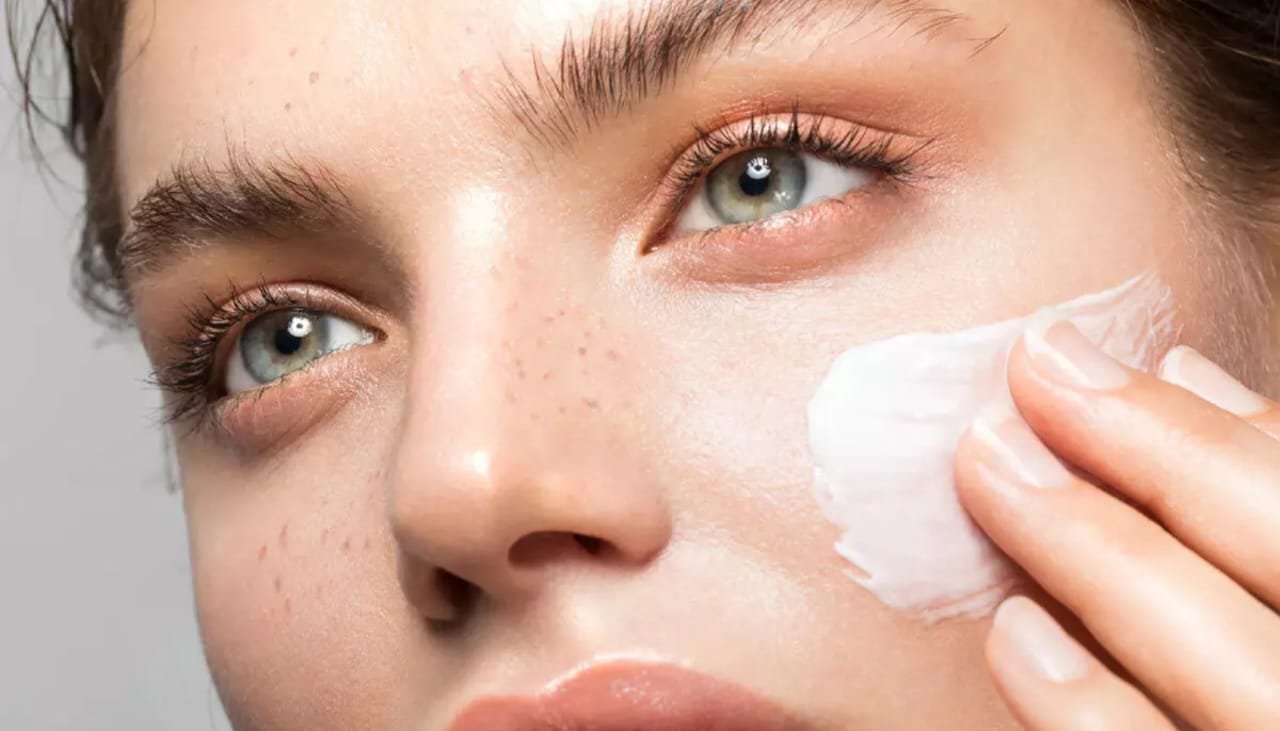Potential Risks Using Body Lotion For Face
When you run out of face cream, it’s tempting to reach for the nearest bottle of body lotion. After all, both products are moisturizers, right?
But the truth is, your facial skin has very different needs compared to the rest of your body. Using body lotion on your face might seem harmless for a day or two, but over time it can lead to skin issues you didn’t expect.

Let us study the differences between face cream and body lotion, the potential risks of using body lotion on your face, and safer alternatives you can try.
1.The Difference Between Face and Body Skin
Before deciding whether you can use body lotion for your face, it’s important to understand that facial skin and body skin are not the same.
Facial skin is thinner, more delicate, and more exposed to environmental stress (like sunlight, pollution, and temperature changes.
Body skin is generally thicker and less sensitive, except in certain areas like the neck and chest.
Because of these differences, skincare products for the face are usually formulated to be gentler, with ingredients tailored to common facial skin concerns such as acne, sensitivity, and fine lines.
Read more @: Difference between face and body lotion
2. What’s in a Body Lotion?
Body lotions are designed to lock in moisture in larger skin areas, especially those prone to dryness (like arms, legs, and elbows). They often contain:
- Thicker emollients like mineral oil, shea butter, or cocoa butter
- Fragrance additives for a pleasant scent
- Occlusive agents to create a protective layer on the skin
- Less expensive oils that might feel heavy on the face
While these ingredients are effective for body hydration, they can be too rich, comedogenic (pore-clogging), or irritating for facial skin.
3. Why Using Body Lotion on the Face Can Be Risky
Here’s why you might want to think twice before using body lotion on your face regularly:
a) Pore Clogging and Acne
Body lotions may contain heavier oils and occlusives that can block pores, leading to blackheads, whiteheads, or acne breakouts—especially for oily or combination skin.
Also explore: Best 7-Step Skin Care Routine To Reduce Visible Pores: For Smoother, Clearer Skin
b) Skin Irritation
Fragrances and certain preservatives used in body lotions can cause redness, itching, or rashes on the sensitive skin of the face.
c) Unbalanced pH
Facial skin has a slightly acidic pH (around 4.5–5.5). Many body lotions are not pH-balanced for the face, which can disrupt the skin barrier and lead to dryness or sensitivity.
d) Accelerated Aging
Some thick body creams can trap sweat and oil on the face, potentially increasing inflammation, which is linked to premature wrinkles.
4. Situations When You Can Use Body Lotion on the Face
While it’s not ideal for everyday use, there are certain situations when body lotion can be a temporary stand-in for your face cream:
Emergency hydration – If your face feels extremely dry and you have no other moisturizer available.
Short-term travel – When you want to minimize products and don’t have a separate face cream.
Non-comedogenic, fragrance-free formula – Some body lotions (like those from CeraVe or Aveeno) are mild enough for occasional facial use.
Pro tip: Always do a patch test on a small area of your jawline before applying body lotion to your entire face.
5. Safer Alternatives to Using Body Lotion on the Face
Instead of using your body lotion, you can choose multi-purpose moisturizers that are safe for both face and body. Look for:
- Oil-free or non-comedogenic labels
- Fragrance-free and hypoallergenic formulas
- Lightweight, quick-absorbing textures
Some good alternatives include:
- Aloe vera gel (natural and soothing)
- Hyaluronic acid-based moisturizers
- Gentle ceramide creams suitable for all skin types
6. How to Choose the Right Moisturizer for Your Face
If you want to maintain healthy, glowing skin, investing in a dedicated facial moisturizer is worth it. Here’s what to consider:
For Oily Skin
Lightweight gel or water-based formulas
Ingredients: Niacinamide, Hyaluronic acid
For Dry Skin
Rich creams with ceramides, glycerin, or shea butter
Avoid heavy petroleum-based creams that may feel greasy
For Sensitive Skin
Minimal ingredient list
Avoid fragrances, dyes, and alcohol
You may also like: Best Face Serums for Every Skin Type: Oily, Dry & Combination
7. Expert Opinions on the Topic
Dermatologists generally recommend using products designed for the specific skin area. According to Dr. Shereene Idriss, a board-certified dermatologist,
Your facial skin is more sensitive and needs lighter, targeted ingredients. While body lotion won’t harm you instantly, repeated use can cause breakouts, irritation, or worsen skin concerns.
8. Common Myths About Body Lotion and Face Care
Myth 1: “Moisturizer is moisturizer. It’s all the same.”
Fact: Formulations differ greatly depending on the skin area they target.
Myth 2: “If it works on my arms, it will work on my face.”
Fact: Your arms don’t have the same sensitivity or oil gland density as your face.
Myth 3: “Natural body lotions are always safe for the face.”
Fact: Even natural oils can clog pores or cause allergic reactions.
9. Tips If You Must Use Body Lotion on Your Face
If you’re in a pinch and decide to use body lotion on your face, follow these precautions:
1. Pick the mildest option – Prefer fragrance-free, non-comedogenic lotions.
2. Apply on clean skin – Remove makeup and dirt first to avoid trapping impurities.
3. Use sparingly – Apply only a thin layer.
4. Watch for reactions – Stop immediately if you notice redness, bumps, or itching.
10. Final Verdict – Should You Use Body Lotion on Your Face?
While you can technically use body lotion on your face, it’s not the best practice for long-term skincare. Your face deserves gentler, more targeted hydration that respects its unique sensitivity and needs. Body lotions are formulated for thicker skin and often contain ingredients that can irritate or clog pores on the face.
If you care about preventing breakouts, keeping your skin barrier healthy, and slowing signs of aging, it’s better to invest in a dedicated facial moisturizer.
11. Quick Takeaways
Facial skin ≠ Body skin – They have different needs.
Body lotions are often too heavy, fragrant, or occlusive for the face.
In emergencies, mild, fragrance-free formulas can work temporarily.
For best results, choose a moisturizer designed for facial use.
12. FAQs About Using Body Lotion on the Face
Q1. Can I use body lotion on my face every day?
Not recommended. Daily use may cause irritation or breakouts over time.
Q2. Is there any body lotion safe for the face?
Some mild, dermatologist-tested, fragrance-free formulas can be used occasionally.
Q3. Can using body lotion on my face cause wrinkles?
Indirectly, yes—if it causes inflammation or disrupts the skin barrier.
Q4. What if my skin feels fine after using body lotion on my face?
You might be one of the lucky ones with resilient skin, but it’s still better to choose products formulated for the face for long-term health.
Final Thought
Your skin is your largest organ, and your face is the most visible part of it. While a bottle of body lotion might save you in a pinch, your face deserves the extra care of a product made just for it.




